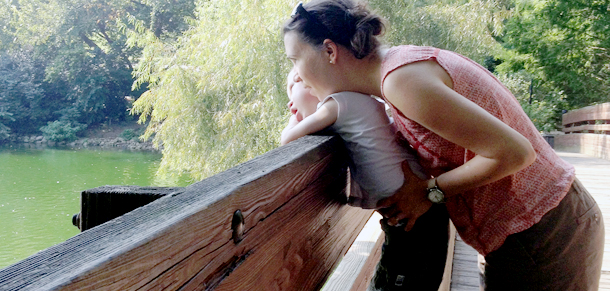I remember very clearly the day I chose to be an advocate for my son. We were at a neurology appointment, which in those days came every week or two as we tried desperately to get our hands on the reins of his catastrophic seizure disorder. This appointment was to determine the effectiveness of his most recent antiepileptic drug.
The doctor – who we liked and trusted and still see regularly – asked about changes in seizures frequency (none) or severity (also none). He eyed Collin in my arms, still puffy from his last medicine trial, and asked if this was his typical state. I just said yes. And then he recommended that we increase the dose and hope for the best.
My insides clenched. I could not believe it. How could we bear a dose increase? I looked down at Collin and blinked back the tears and suddenly realized, “He thinks Collin is asleep. He doesn’t know.”
So I told him. I told him that we had, in essence, lost our son within 24 hours of starting this medicine. That he had stopped eating, interacting, even opening his eyes. The only way I could tell he was awake was by his agitated breathing. I told him that being on this medicine was worse than uncontrolled seizures.
His eyebrows rose and he said, “That’s not good.” Then he gave instructions to start a round of steroids, which we had had some limited success with already, while we started the process of obtaining a drug from Canada. A drug that ended up stopping the seizures within 48 hours.
It was an eye opening moment. Up to that point, still dazed by the shifting landscape of our future and wrestling with the inevitable grief and anxiety that comes with a diagnosis like Infantile Spasms, I hadn’t quite figured out where I fit in Collin’s care. I tried to make him comfortable and got him to all of his many appointments. But this was the moment that I became his champion. I realized that, no matter how brilliant the specialist, there were things that only I knew. And I realized that I could help Collin if I made myself heard.
Loving your child doesn’t make you her advocate. Wanting the best for him does not make you his advocate. Meeting every need does not make you an advocate. Advocating makes you an advocate. And to advocate is to speak on behalf of another, championing their cause, standing between them and the world.
Am I saying that the world is against your child? Sort of.
The world is against your child in the same way it is against all of us. It isn’t easy. Things take longer than they should or they don’t work at all. People don’t listen. Without waxing cynical, I can safely say that everyday life involves struggle.
Add into this mix a medical condition. A developmental delay that inhibits speech. Or mobility. Or comprehension. And what you get is further complexity, increased difficulty. A person who needs an advocate in order to reach their optimal health, function, and happiness.
Where to even start? It’s not as complicated as it might seem. In fact, in my experience, effective advocacy only involves two things:
1. Effective advocacy requires being the voice.
Open your mouth. Ask questions. Share observations. Request help or information or guidance. Forge the way for your child with your words.
2. Effective advocacy requires seeing the big picture and then guarding it.
One of the best ways to advocate for your child is to have a good grasp on what you’re advocating for. You are not merely representing your son or daughter to a doctor or standing up for them to an insurance company (though those are both important factors). You are building, empowering, and preserving a life for your child, complete with the best possible health and opportunities for development, but also including down time, fun time, exploratory time. You are guarding a childhood and nurturing a little individual. Decisions about medications, therapies, and treatments must be made in light of this whole view. What does your family value? What does your child love to do? What kind of environment do you hope to create at home? How do you want to approach the future? These are questions that, far from turning irrelevant in the face of trial, become even more crucial.
Ready to forge ahead? Next time, I’ll suggest some practical ways in which we can advocate well in daily life.






[…] talked last time about becoming an advocate for your child and what that involves,but it can still be hard to know […]